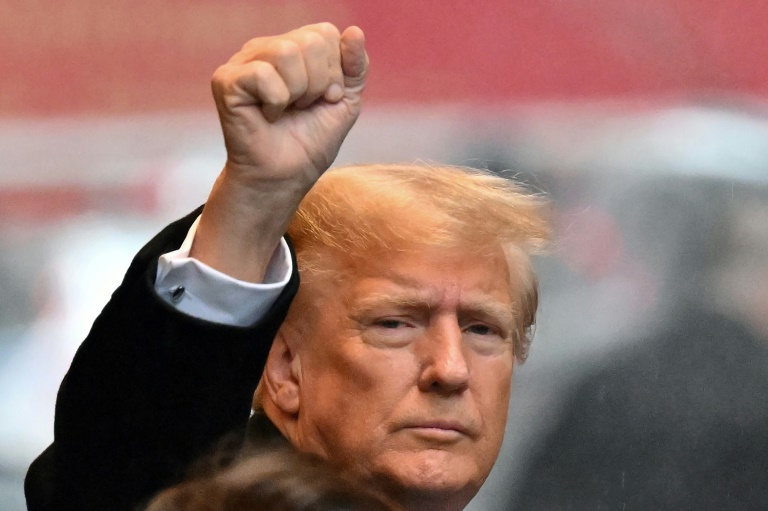Donald Trump has no immunity from prosecution as a former president and can be tried on charges of conspiring to overturn the 2020 election, a federal appeals court ruled Tuesday.
A three-judge panel of the US Court of Appeals for the District of Columbia Circuit said Trump’s claim that he is immune from criminal liability for actions he took while in the White House is “unsupported by precedent, history or the text and structure of the Constitution.”
The ruling is a major legal setback for Trump, 77, the frontrunner for the 2024 Republican presidential nomination, and he is expected to appeal it to the full DC appeals court and potentially the US Supreme Court.
A spokesman for Trump said the former president would appeal.
Trump had been scheduled to go on trial on March 4 on charges of conspiring to overturn the results of the 2020 election won by Democrat Joe Biden but the district judge overseeing the case was forced to postpone the start of the trial pending a ruling on the immunity issue by the appeals court.
District Judge Tanya Chutkan, who is to preside over Trump’s election interference trial, rejected Trump’s immunity claim in December and the three judges who heard his appeal last month were also unconvinced by his arguments.
“For the purpose of this criminal case, former President Trump has become citizen Trump, with all of the defenses of any other criminal defendant,” the judges said in a unanimous ruling.
“But any executive immunity that may have protected him while he served as President no longer protects him against this prosecution,” they said.
Special Counsel Jack Smith, who brought the election conspiracy case against Trump, had been trying to keep the March start date for Trump’s trial on track while lawyers for the former president have sought repeatedly to delay it until after the November presidential election.
Trump also faces election interference charges in the state of Georgia and has been indicted in Florida on charges of illegally taking large numbers of top secret documents with him on leaving the White House.
Trump was impeached twice by the Democratic-controlled House of Representatives while in office but acquitted both times.
During arguments last month before the appeals court all three justices appeared skeptical of the immunity arguments put forward by Trump’s lawyer.
“I think it’s paradoxical to say that his constitutional duty ‘to take care that the laws be faithfully executed’ allows him to violate criminal laws,” said Judge Karen Henderson, an appointee of former Republican president George H.W. Bush.
Trump’s attorney John Sauer told the judges that a president can only be prosecuted for actions taken while in the White House if first impeached and convicted by Congress.
“To authorize the prosecution of a president for his official acts would open a Pandora’s Box from which this nation may never recover,” Sauer said.
James Pearce, a Justice Department attorney, called that an “extraordinarily frightening” prospect and said it would allow a president to resign before being impeached and escape punishment.
AFP







